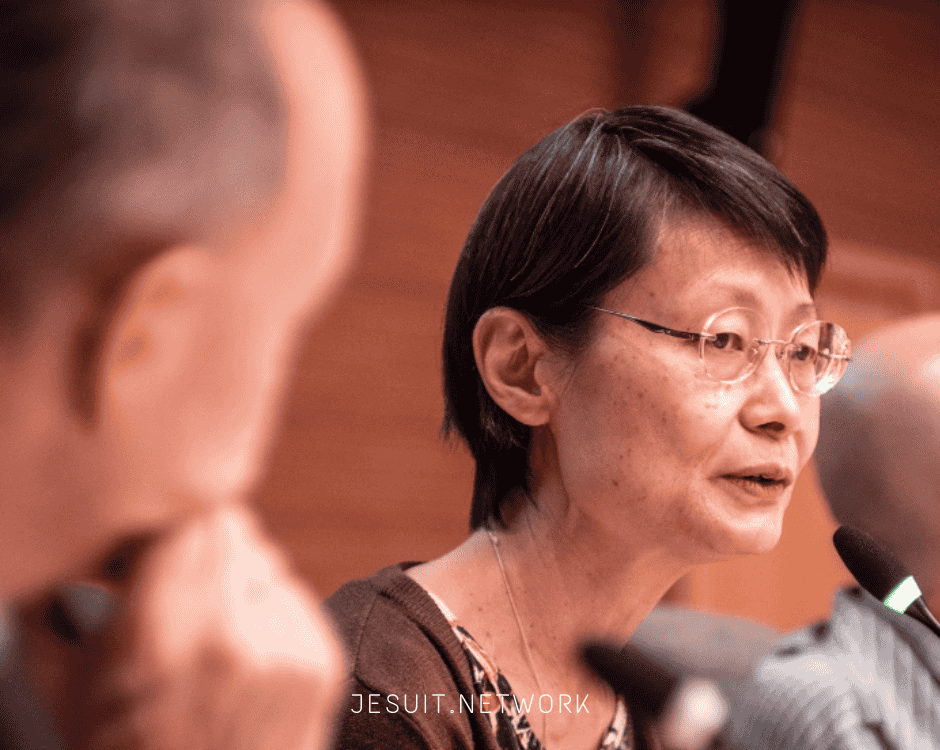Este sitio web utiliza cookies para que podamos ofrecerle la mejor experiencia de usuario posible. La información sobre cookies se almacena en su navegador y realiza funciones como reconocerle cuando vuelve a nuestro sitio web y ayudar a nuestro equipo a comprender qué secciones del sitio web le resultan más interesantes y útiles.
Loyola Andalucía presents the conclusions of the joint participation of Jesuit universities in EAIE 2017
Last September, Seville served as the venue of the twenty-ninth annual conference of the European Association for International Education (EAIE), the second largest meeting on higher education worldwide, just behind the North American conference (NAFSA). With more than 6,000 attendees and the direct participation of 250 companies linked to the training sector, the organization calculates an injection of 16 million euros for the local economy during that week.
Loyola University of Andalusia, encouraged by the General Secretary of Higher Education of the Society of Jesus, Michael J. Garanzini SJ, mobilized 36 universities of the Jesuit network to participate together in the event. Thus, under the name, International Association of Jesuit Universities (IAJU), and under the motto “The world is our home”, there were representatives from US universities such as Loyola University Chicago, San Francisco or Marquette University; Spanish Universities such as Deusto and Universidad Pontificia de Comillas; Latin American universities such as the Iberoamericana of Mexico, José Simenón Cañas del Salvador, or Javerianas from Colombia; Middle East was represented by Saint Joseph’s of Lebanon, and Asian universities were present such as Sophia University of Japan or the Athenaeum of Manila, Philippines, among many others.
And it was during the last meeting convened by the Association of Jesuit Colleges and Universities (AJCU) and the Association of Universities of the Society of Jesus in Latin America (AUSJAL), held in Chile where the Andalusian social initiative center was able to highlight the results achieved thanks to the joint participation of Jesuit universities. Thus, with more than 50 impressions in local, national and international media and with a reach in social media of more than 36,000 direct impacts, the IAJU has valued its participation in the EAIE 2016 as a resounding success as being the first occasion in which Jesuit universities attended together an event of these characteristics.
As Gabriel Pérez Alcalá, president of Loyola Andalusia, says regarding the “cosmopolitan university,” – “promoting the internationalization of higher education goes far beyond sending and receiving students from other countries, far beyond whether the international student adapts to the culture that welcomes him or her; becoming ‘cosmopolitan’ means that these students develop an active role in shaping a collective culture that is enriched by the plurality of nationalities, beliefs, motivations and personal experiences.”
For Borja Martín, Director of International Relations at Loyola Andalusia and the only Spanish member of the Conference Program Committee of the EAIE, “the premise of cosmopolitan university is what has inspired synergies between universities of the Society of Jesus”. Not all Jesuit universities or higher education institutions may reach the category of “world class universities”, but we can affirm with certainty that the Jesuit network, one of the oldest and largest in the university world, is a “world-class network”. “To better serve the mission entrusted by GC35 and GC36 is to enhance the network, strengthening synergies and coordination among us. It is necessary to build a culture of efficient collaboration and solidarity to join efforts in continuing to train the best for the world.”





